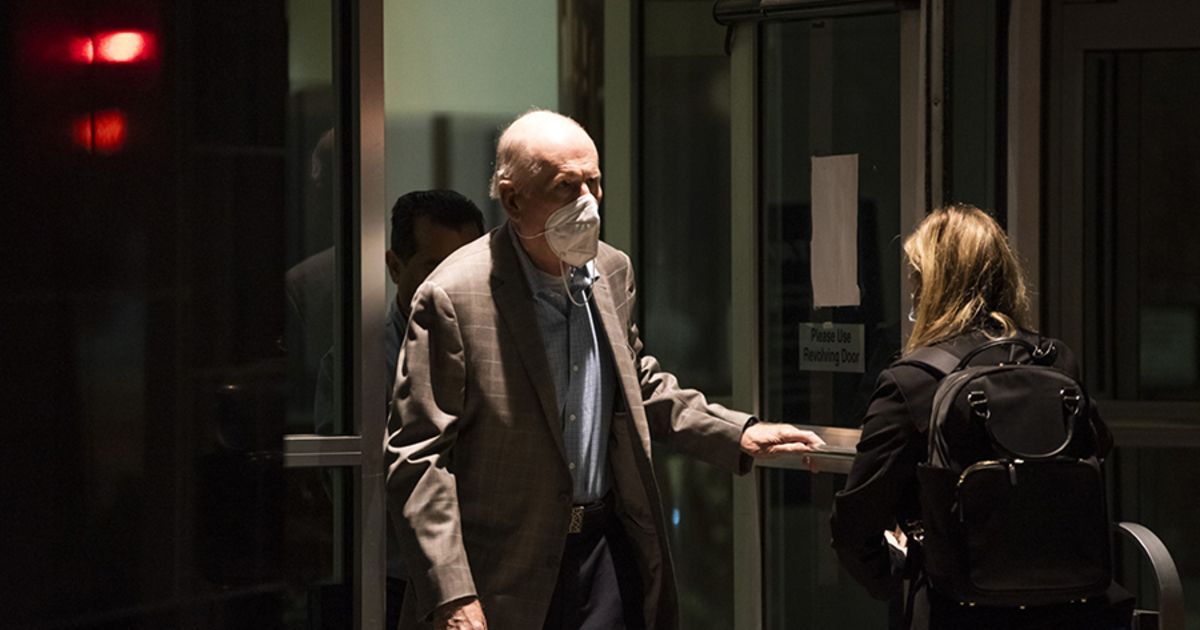
Bob Brockman, the former CEO of dealership management system giant Reynolds and Reynolds Co. who was indicted in what federal prosecutors called the largest-ever tax case against an individual in U.S. history, has died at 81.
Brockman was a self-taught computer programmer who started dealership software company Universal Computer Systems Inc. in his living room in 1970, before taking the helm of Reynolds and Reynolds after a merger with UCS in 2006.
But his rise in the auto retailing software world started to unravel in October 2020, when he was charged with tax evasion, wire fraud and other crimes in what prosecutors say was a scheme lasting two decades to evade taxes on $2 billion in income.
He stepped down as chairman and CEO of Reynolds in November 2020, shortly before his attorneys argued in federal court that Brockman had dementia that left him incompetent to stand trial. A federal judge in May ultimately found Brockman to be competent, moving forward with a trial scheduled for February 2023.
Brockman died late Friday, Kathy Keneally, his attorney, told Bloomberg.
“The government wasted time and resources indicting a man who had progressive dementia and was terminally ill,” Keneally said, according to Bloomberg.
Brockman was born May 28, 1941, in St. Petersburg, Fla. His father, Alfred Eugene Brockman, owned a gas station. His mother, Pearl, was a physiotherapist. With the family struggling financially, Brockman “decided he didn’t love that and went out to make something of himself,” his younger brother, David, told The Wall Street Journal in 2021.
In his younger days, Brockman was known as an inexhaustible worker with a passion for physical fitness, fly-fishing in Colorado and dove hunting in Argentina. Forbes estimated his net worth at $4.7 billion.
He attended Centre College in Kentucky but earned a bachelor’s degree in business administration from the University of Florida. He enlisted in the U.S. Marine Corps while in college.
After college, Brockman worked at Ford Motor Co. as a marketing trainee before going to work at IBM, where he sold auto parts inventory. He started UCS after leaving IBM.
“I wrote the first parts inventory package in the evenings, and then went out and sold it,” Brockman wrote on his personal website, now deactivated. “I actually sold in the daytime, programmed at night, and processed on the weekend.”
Brockman’s smaller UCS merged with then-publicly traded Reynolds and Reynolds in 2006 for $2.8 billion, a transaction that took Reynolds private.
The publicity-shy Brockman often let other executives be the public face of the company and rarely granted interviews. He earned a reputation in the industry as a tough businessman and negotiator, and he was a defender of controversial fees that Reynolds charged to integrate third-party software products into its dealership management systems.
“Frankly, I’m just letting [dealers] see me and talk to me,” Brockman told Automotive News in November 2007, a year after the merger was completed and amid efforts to meet with dealers across the U.S. “My competitors have spread a lot of words about what kind of person I am. I don’t think I’m that way, and after I go talk to these dealers, they don’t think that I’m that way, either.”
He stepped down from Reynolds’ leadership weeks after the federal government’s indictment was unsealed in October 2020. Prosecutors alleged that he was malingering, or feigning, symptoms of dementia in doctor’s offices for years while actively involved in important business decisions as Reynolds’ chief executive.
His lawyers, in seeking a competency hearing, included a medical evaluation by a Baylor College of Medicine neuropsychologist from October 2020, who wrote that Brockman’s wife “noted that he was having difficulties at work and she had to help him type all of his employee performance reviews.”
“For as long as he could, Mr. Brockman tried to rely on his former high intellect and decades of experience, as well as the support and assistance of his wife and business colleagues, in an effort to continue to lead or at least contribute to the business that he built,” his attorneys wrote in a December 2020 court filing. “He knows now that he can no longer do so.”
Brockman was indicted on 39 counts, including tax evasion, wire fraud, evidence tampering and money laundering. Prosecutors allege Brockman used offshore bank accounts to hide income from investments in private equity funds through Vista Equity Partners, and that he fraudulently obtained nearly $68 million in Reynolds and Reynolds debt securities between 2008 and 2010.
Brockman pleaded not guilty to the charges.
In recent months, Brockman had been in declining health. In June, defense attorney Jason Varnado told a federal judge that Brockman “is receiving 24-hour, around-the-clock care” and “is largely bedridden at this stage.” Brockman had been hospitalized in April with a urinary tract infection, pneumonia and sepsis, his attorneys wrote in court filings, and he could not swallow and required a feeding tube.
In September 2021, the IRS assessed Brockman for $1.4 billion, related to taxes it said he owed from 2004 to 2018. The case is pending in U.S. District Court and Tax Court, and the battle against his estate could last years.
“Whether Bob Brockman in fact owed more taxes, which we dispute, can await a decision by the Tax Court,” Keneally told Bloomberg.
Bloomberg contributed to this report.